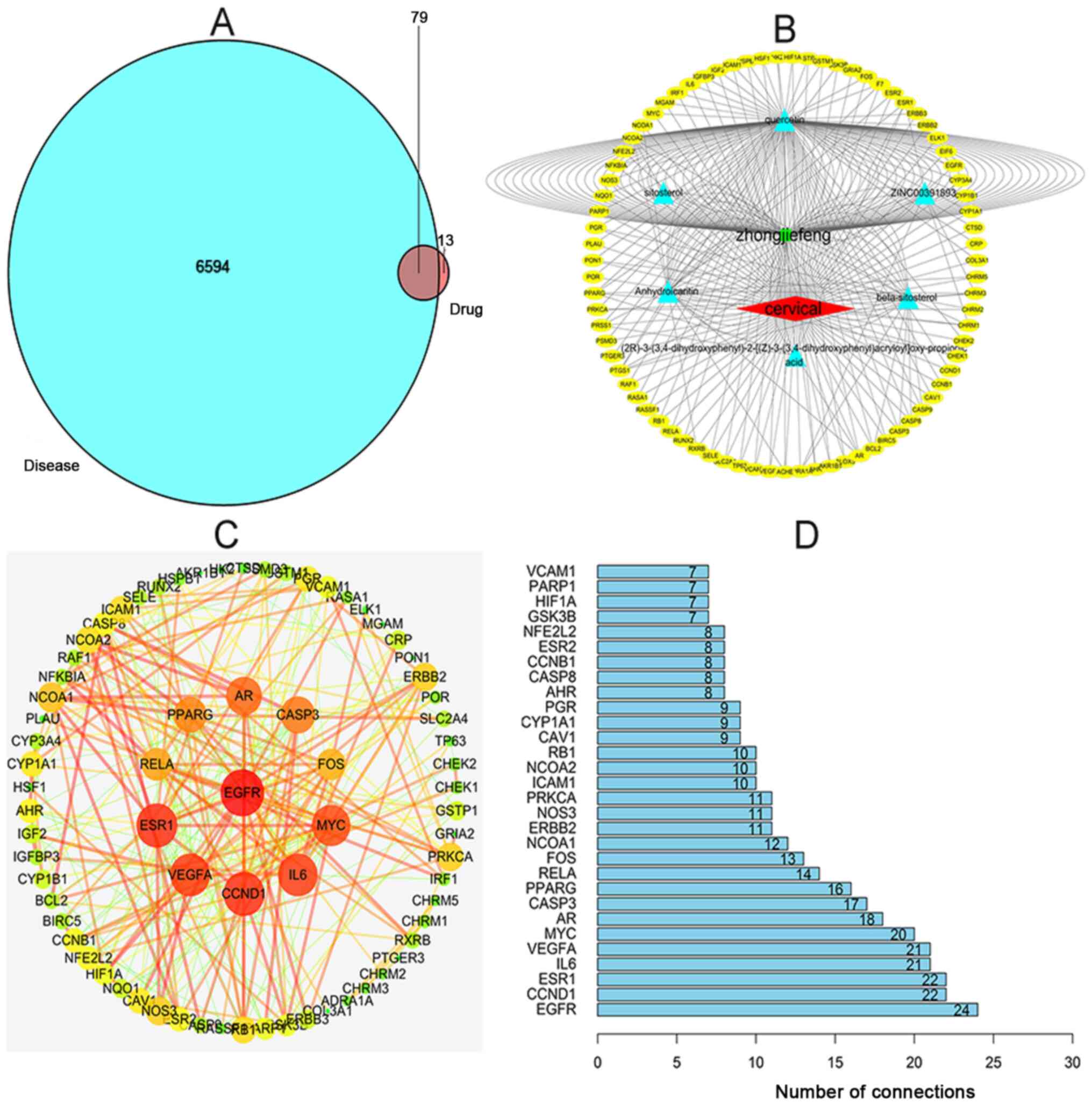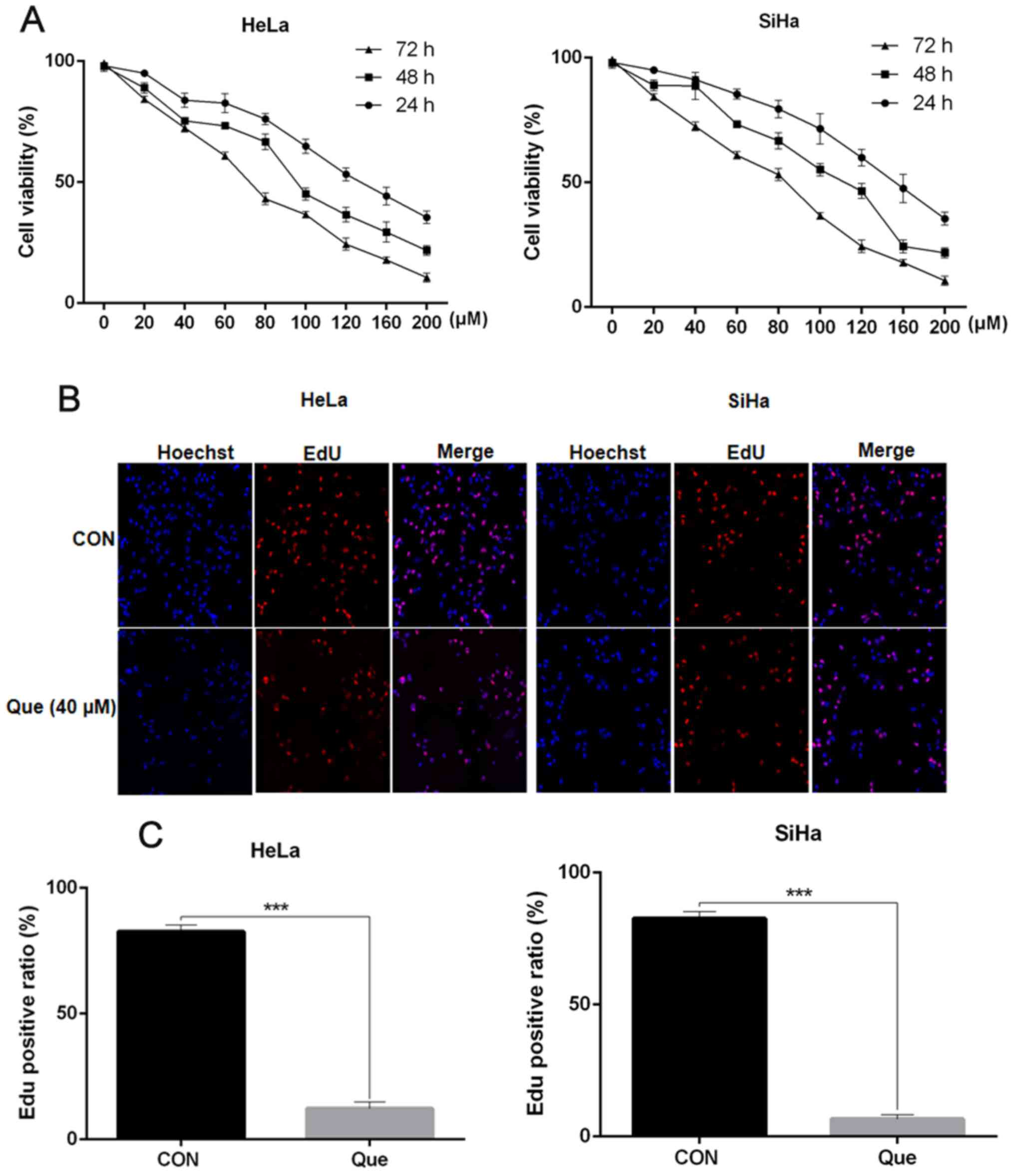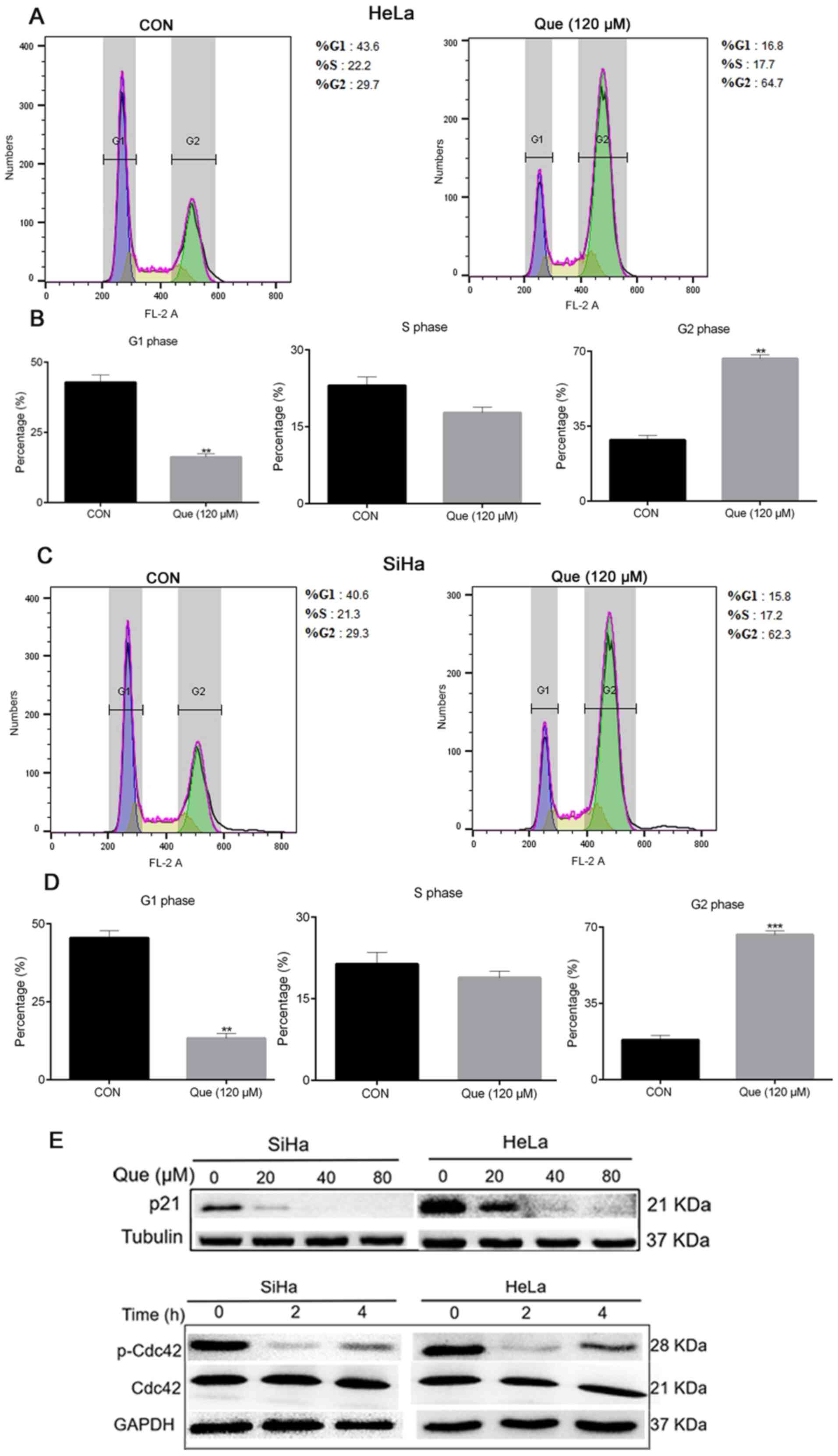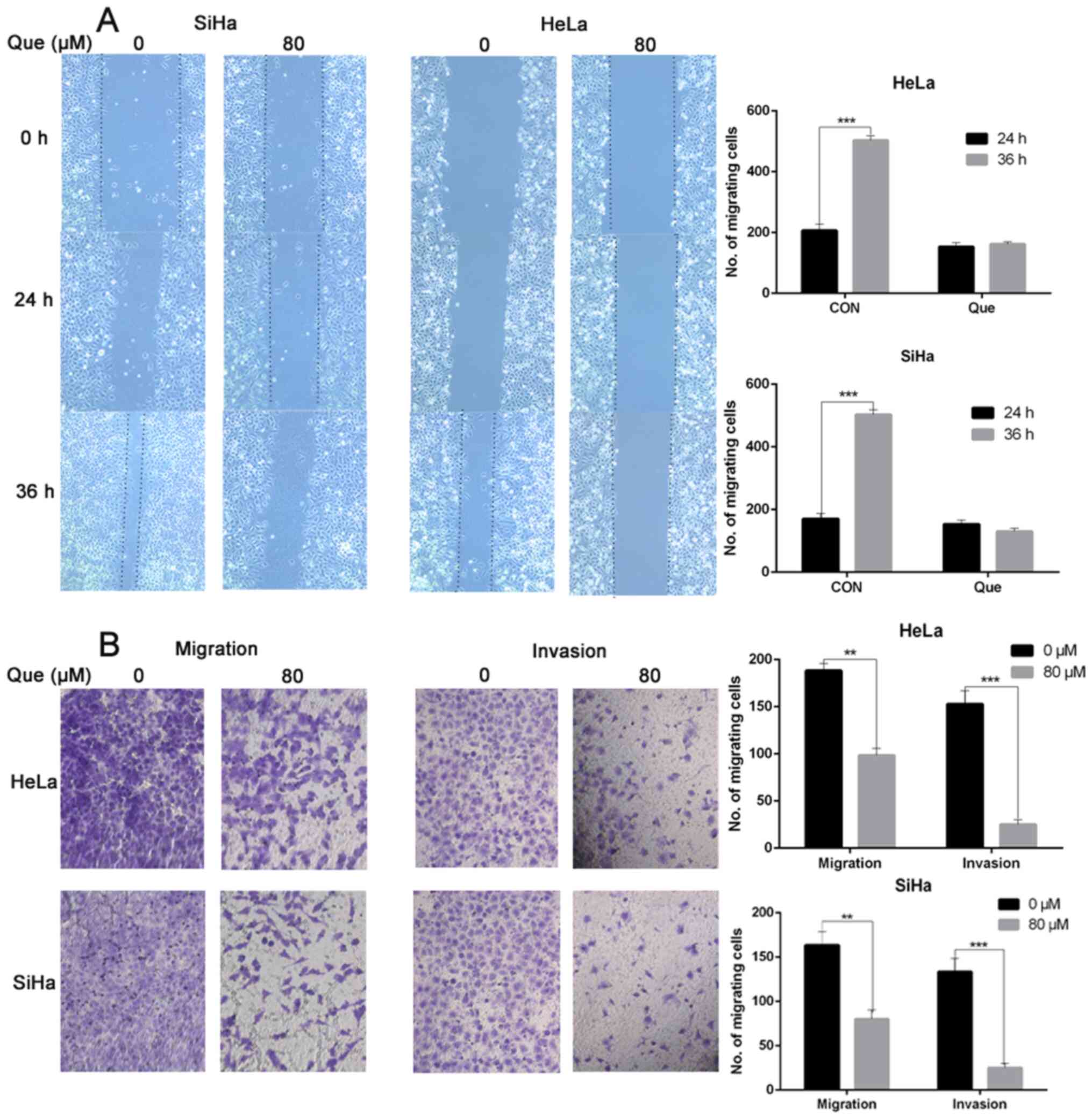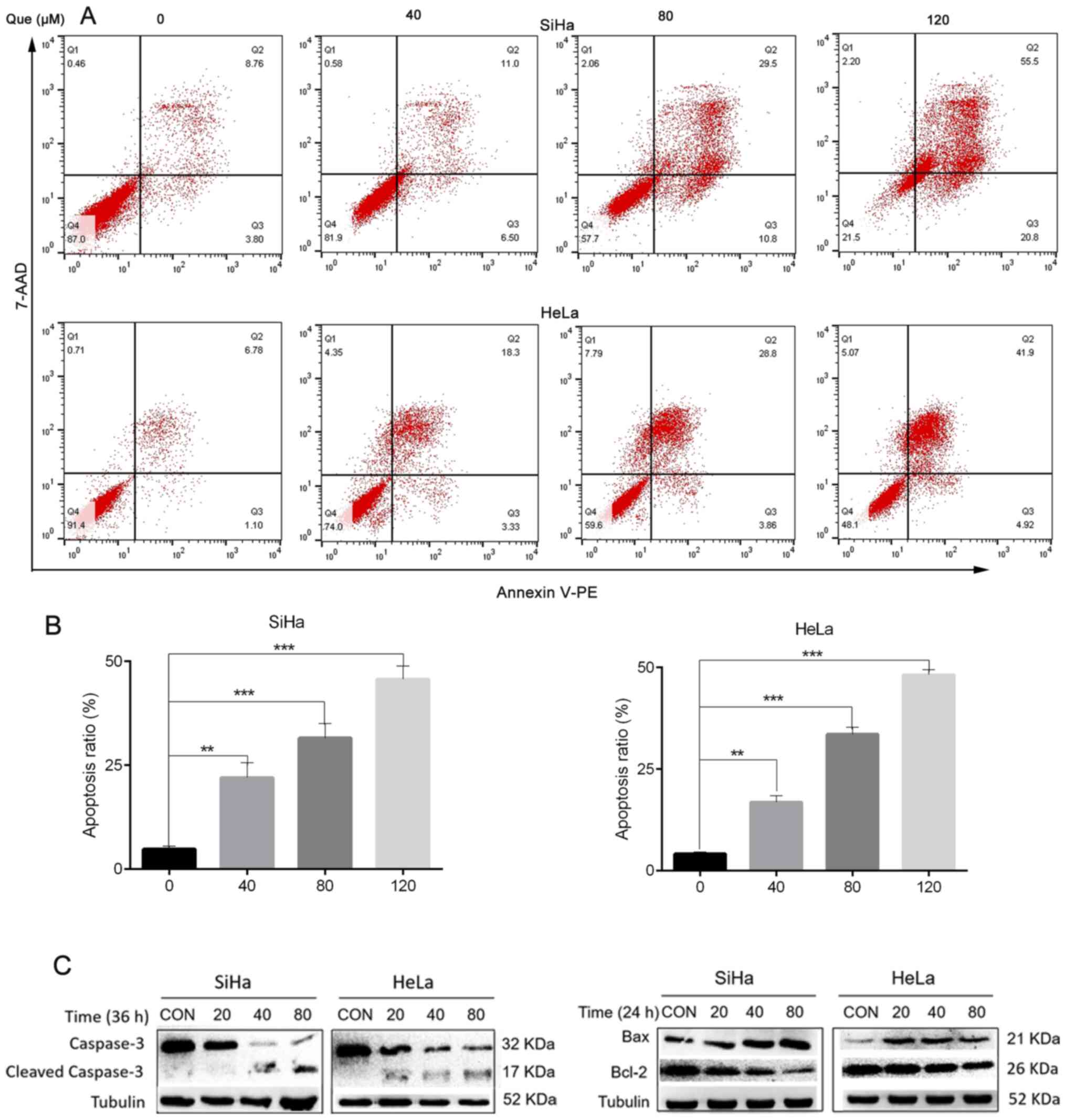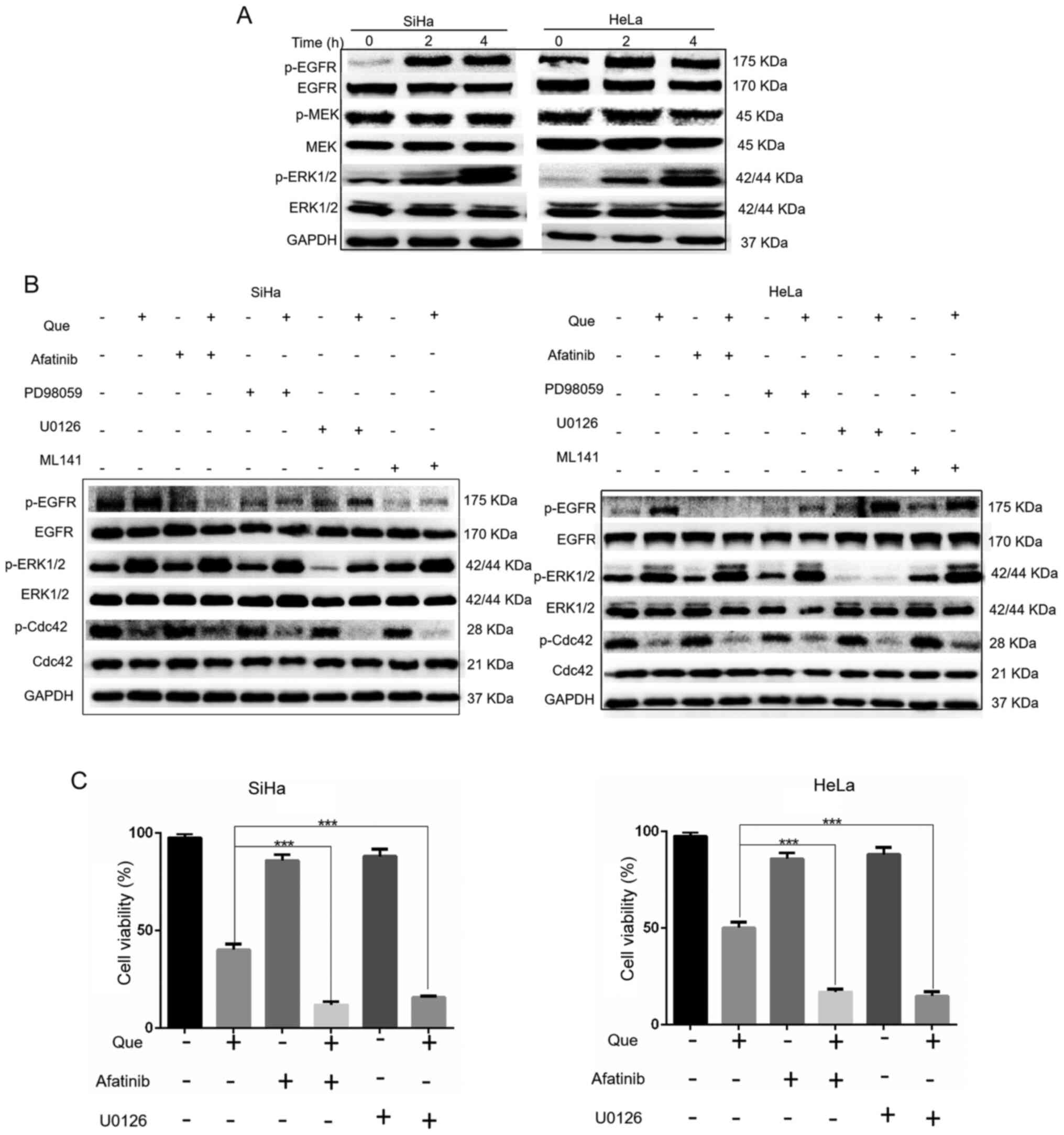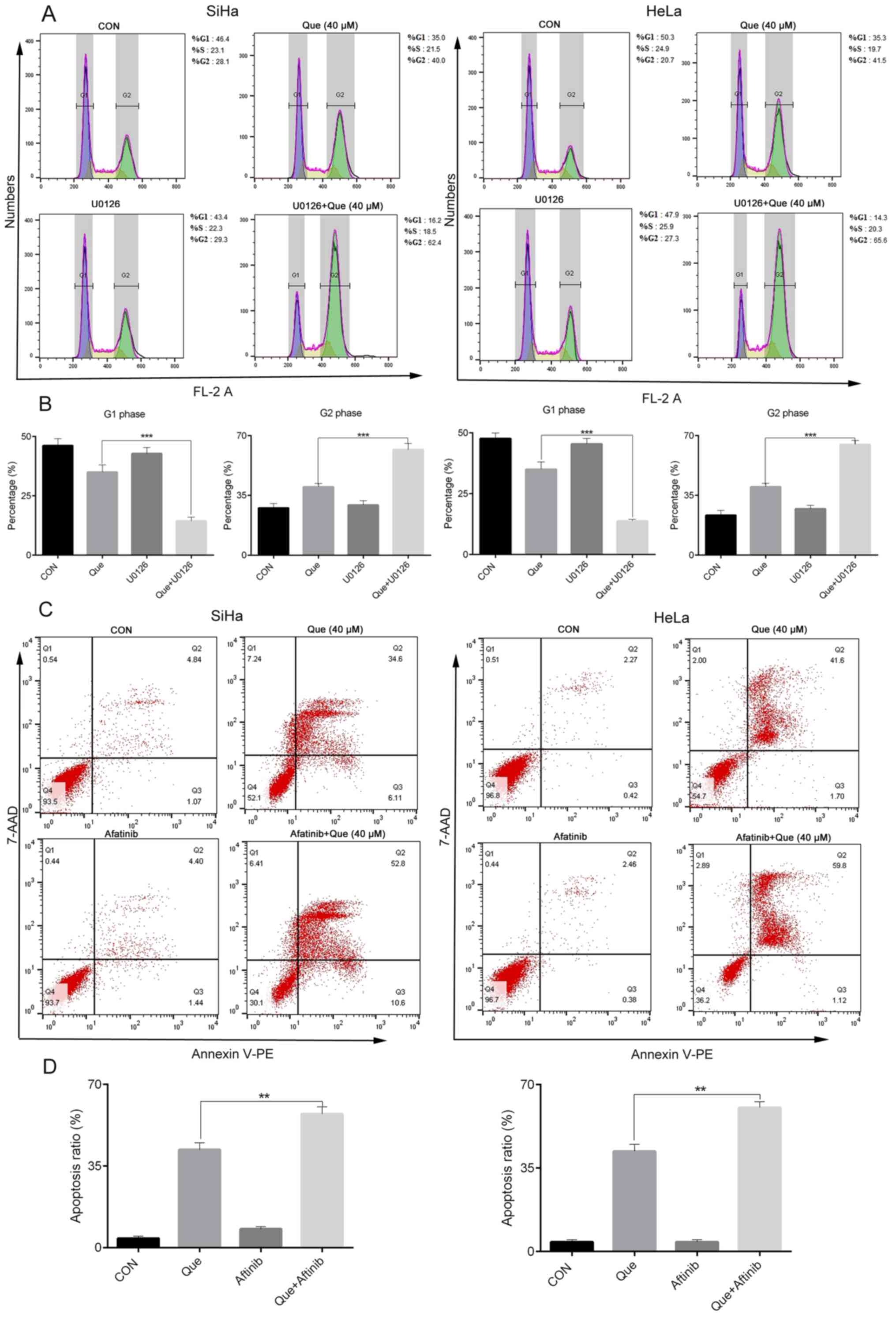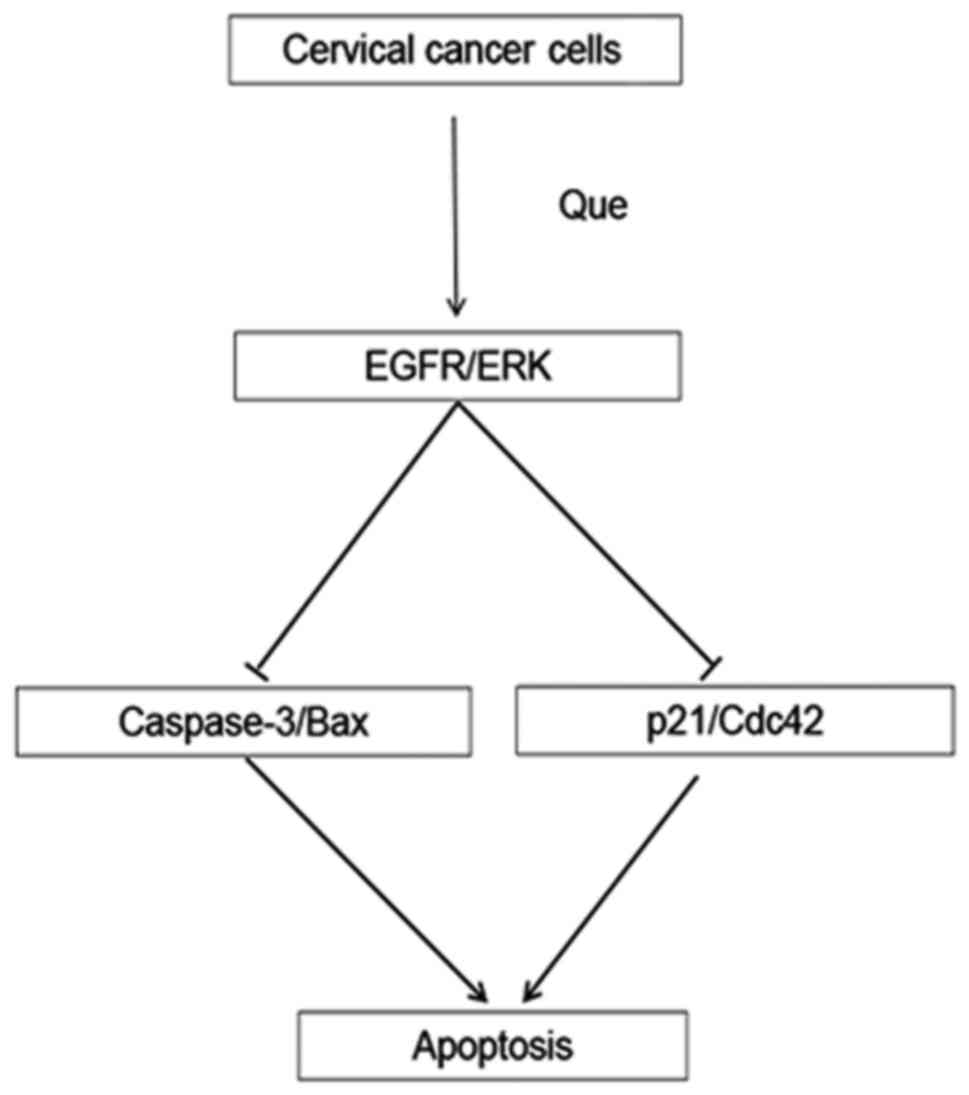|
1
|
Woo S, Atun R, Ward ZJ, Scott AM, Hricak H
and Vargas HA: Diagnostic performance of conventional and advanced
imaging modalities for assessing newly diagnosed cervical cancer:
Systematic review and meta-analysis. Eur Radiol. 30:5560–5577.
2020. View Article : Google Scholar : PubMed/NCBI
|
|
2
|
Tran KN, Park Y, Kim BW, Oh JK and Ki M:
Incidence and mortality of cervical cancer in Vietnam and Korea
(1999–2017). Epidemiol Health. 42:e20200752020. View Article : Google Scholar : PubMed/NCBI
|
|
3
|
Benitez-Restrepo CC, Arias-Ortiz NE and
Arboleda-Ruiz WA: Cervical cancer incidence and patient survival in
Manizales, Colombia, 2008–2012. Rev Peru Med Exp Salud Publica.
37:438–445. 2020.(In Spanish, English). View Article : Google Scholar : PubMed/NCBI
|
|
4
|
D'Alton P, Craddock F, Bergin N and Lynch
J: Exploring the lived experience of partners of women impacted by
cervical cancer and the CervicalCheck screening failure in Ireland.
Psychooncology. Jun 7–2021.(Epub ahead of print). View Article : Google Scholar
|
|
5
|
Malikova H, Burghardtova M, Fejfarova K,
Nadova K and Weichet J: Advanced cervical cancer in young women:
Imaging study of late and very late radiation-related side effects
after successful treatment by combined radiotherapy. Quant Imaging
Med Surg. 11:21–31. 2021. View Article : Google Scholar : PubMed/NCBI
|
|
6
|
Zhang FY, Li JJ, Zhou Y and Xu XY: Review
for sedative and hypnotic mechanism of sedative traditional Chinese
medicine and relative active components on neurotransmitters.
Zhongguo Zhongyao Zazhi. 41:4320–4327. 2016.(In Chinese).
PubMed/NCBI
|
|
7
|
Qian C, Kuang M and Wang Y: Effect of
qianghuo erhuang decoction on T regulatory and T Helper 17 cells in
treatment of adjuvant-induced arthritis in rats. Sci Rep.
7:171982017. View Article : Google Scholar : PubMed/NCBI
|
|
8
|
Chen H, Feng X, Gao L, Mickymaray S,
Paramasivam A, Abdulaziz Alfaiz F, Almasmoum HA, Ghaith MM,
Almaimani RA and Aziz Ibrahim IA: Inhibiting the PI3K/AKT/mTOR
signalling pathway with copper oxide nanoparticles from
Houttuynia cordata plant: Attenuating the proliferation of
cervical cancer cells. Artif Cells Nanomed Biotechnol. 49:240–249.
2021. View Article : Google Scholar : PubMed/NCBI
|
|
9
|
Zeng Y, Liu J, Zhang Q, Qin X, Li Z, Sun G
and Jin S: The traditional uses, phytochemistry and pharmacology of
Sarcandra glabra (Thunb.) Nakai, a Chinese herb with
potential for development: Review. Front Pharmacol.
12:6529262021.Review. View Article : Google Scholar : PubMed/NCBI
|
|
10
|
Zhang Y, Yuan T, Li Y, Wu N and Dai X:
Network pharmacology analysis of the mechanisms of compound Herba
Sarcandrae (Fufang Zhongjiefeng) aerosol in chronic pharyngitis
treatment. Drug Des Devel Ther. 15:2783–2803. 2021. View Article : Google Scholar : PubMed/NCBI
|
|
11
|
Guo X, Shen L, Tong Y, Zhang J, Wu G, He
Q, Yu S, Ye X, Zou L, Zhang Z, et al: Antitumor activity of caffeic
acid 3,4-dihydroxyphenethyl ester and its pharmacokinetic and
metabolic properties. Phytomedicine. 20:904–912. 2013. View Article : Google Scholar : PubMed/NCBI
|
|
12
|
Trusov NV, Apryatin SA, Shipelin VA and
Gmoshinski IV: Full transcriptome analysis of gene expression in
liver of mice in a comparative study of quercetin efficiency on two
obesity models. Probl Endokrinol (Mosk). 66:31–47. 2020.(In
Russian). View Article : Google Scholar : PubMed/NCBI
|
|
13
|
Flater D: A system of quantities from
software metrology. Measurement (Lond). 168:2021.doi:
10.1016/j.measurement.2020.108435. PubMed/NCBI
|
|
14
|
Mokhtari Sangdehi SR, Hajizadeh Moghaddam
A and Ranjbar M: Anti-apoptotic effect of silymarin-loaded chitosan
nanoparticles on hippocampal caspase-3 and Bcl-2 expression
following cerebral ischemia/reperfusion injury. Int J Neurosci. Jan
21–2021.(Epub ahead of print). View Article : Google Scholar : PubMed/NCBI
|
|
15
|
Zhang X, Huang R, Gopalakrishnan S,
Cao-Milán R and Rotello VM: Bioorthogonal nanozymes: Progress
towards therapeutic applications. Trends Chem. 1:90–98. 2019.
View Article : Google Scholar : PubMed/NCBI
|
|
16
|
Luckett R and Feldman S: Will HPV
vaccination affect cervical cancer morbidity and mortality
world-wide? Hum Vaccin Immunother. 12:1373–1374. 2016. View Article : Google Scholar : PubMed/NCBI
|
|
17
|
Dehelean CA, Marcovici I, Soica C, Mioc M,
Coricovac D, Iurciuc S, Cretu OM and Pinzaru I: Plant-derived
anticancer compounds as new perspectives in drug discovery and
alternative therapy. Molecules. 26:262021. View Article : Google Scholar
|
|
18
|
Mohsenpour H, Pesce M, Patruno A, Bahrami
A, Pour PM and Farzaei MH: A review of plant extracts and
plant-derived natural compounds in the prevention/treatment of
neonatal hypoxic-ischemic brain injury. Int J Mol Sci. 22:222021.
View Article : Google Scholar
|
|
19
|
Yoo S, Yang HC, Lee S, Shin J, Min S, Lee
E, Song M and Lee D: A deep learning-based approach for identifying
the medicinal uses of plant-derived natural compounds. Front
Pharmacol. 11:5848752020. View Article : Google Scholar : PubMed/NCBI
|
|
20
|
Vu DL, Žabčíková S, Červenka L, Ertek B
and Dilgin Y: Sensitive voltammetric determination of natural
flavonoid quercetin on a disposable graphite lead. Food Technol
Biotechnol. 53:379–384. 2015. View Article : Google Scholar : PubMed/NCBI
|
|
21
|
Harwood M, Danielewska-Nikiel B,
Borzelleca JF, Flamm GW, Williams GM and Lines TC: A critical
review of the data related to the safety of quercetin and lack of
evidence of in vivo toxicity, including lack of
genotoxic/carcinogenic properties. Food Chem Toxicol. 45:2179–2205.
2007. View Article : Google Scholar : PubMed/NCBI
|
|
22
|
Elmowafy M, Musa A, Alnusaire TS, et al:
Olive Oil/Pluronic Oleogels for Skin Delivery of Quercetin: In
Vitro Characterization and Ex Vivo Skin Permeability. Polymers
(Basel). 13:2021. View Article : Google Scholar : PubMed/NCBI
|
|
23
|
Kim JM, Seo SW, Han DG, Yun H and Yoon IS:
Assessment of metabolic interaction between repaglinide and
quercetin via mixed inhibition in the liver: In vitro and in vivo.
Pharmaceutics. May 23–2021.(Epub ahead of print).
|
|
24
|
Boulton DW, Walle UK and Walle T: Fate of
the flavonoid quercetin in human cell lines: Chemical instability
and metabolism. J Pharm Pharmacol. 51:353–359. 1999. View Article : Google Scholar : PubMed/NCBI
|
|
25
|
Ferry DR, Smith A, Malkhandi J, Fyfe DW,
deTakats PG, Anderson D, Baker J and Kerr DJ: Phase I clinical
trial of the flavonoid quercetin: Pharmacokinetics and evidence for
in vivo tyrosine kinase inhibition. Clin Cancer Res. 2:659–668.
1996.PubMed/NCBI
|
|
26
|
Chalet C, Hollebrands B, Duchateau GS and
Augustijns P: Intestinal phase-II metabolism of quercetin in HT29
cells, 3D human intestinal tissues and in healthy volunteers: A
qualitative comparison using LC-IMS-MS and LC-HRMS. Xenobiotica.
49:945–952. 2019. View Article : Google Scholar : PubMed/NCBI
|
|
27
|
Rashedi J, Ghorbanihaghjo A, Asgharzadeh M
and Baradaran B: Chitosan and quercetin: Potential hand in hand
encountering tumors in oral delivery system. Curr Pharm Des.
25:3074–3086. 2019. View Article : Google Scholar : PubMed/NCBI
|
|
28
|
Peng Z, Wang Q, Zhang Y, He J and Zheng J:
EBP50 interacts with EGFR and regulates EGFR signaling to affect
the prognosis of cervical cancer patients. Int J Oncol.
49:1737–1745. 2016. View Article : Google Scholar : PubMed/NCBI
|
|
29
|
Zhang W, Gao Y, Jiang Y, Ping L, Cheng H
and Zhang J: EGFR promoter methylation detection in cervical cancer
by a hybridization-fluorescence polarization assay. Diagn Mol
Pathol. 22:102–106. 2013. View Article : Google Scholar : PubMed/NCBI
|
|
30
|
Hartman Z, Geldenhuys WJ and Agazie YM: A
specific amino acid context in EGFR and HER2 phosphorylation sites
enables selective binding to the active site of Src homology
phosphatase 2 (SHP2). J Biol Chem. 295:3563–3575. 2020. View Article : Google Scholar : PubMed/NCBI
|
|
31
|
Guerrero C, Pesce L, Lecuona E, Ridge KM
and Sznajder JI: Dopamine activates ERKs in alveolar epithelial
cells via Ras-PKC-dependent and Grb2/Sos-independent mechanisms. Am
J Physiol Lung Cell Mol Physiol. 282:L1099–L1107. 2002. View Article : Google Scholar : PubMed/NCBI
|
|
32
|
Liu Y, Shi QF, Ye YC, Tashiro S, Onodera S
and Ikejima T: Activated O2(•-) and
H2O2 mediated cell survival in
SU11274-treated non-small-cell lung cancer A549 cells via
c-Met-PI3K-Akt and c-Met-Grb2/SOS-Ras-p38 pathways. J Pharmacol
Sci. 119:150–159. 2012. View Article : Google Scholar : PubMed/NCBI
|
|
33
|
Viñas JL, Spence M, Porter CJ, Douvris A,
Gutsol A, Zimpelmann JA, Campbell PA and Burns KD: micro-RNA-486-5p
protects against kidney ischemic injury and modifies the apoptotic
transcriptome in proximal tubules. Kidney Int. Jun 26–2021.(Epub
ahead of print). View Article : Google Scholar : PubMed/NCBI
|
|
34
|
Xu Z, Shi X, Bao M, Song X, Zhang Y, Wang
H, Xie H, Mao F, Wang S, Jin H, et al: Transcriptome-wide analysis
of RNA m6A methylation and gene expression changes among two
arabidopsis ecotypes and their reciprocal hybrids. Front Plant Sci.
12:6851892021. View Article : Google Scholar : PubMed/NCBI
|
|
35
|
Toki MI, Carvajal-Hausdorf DE, Altan M,
McLaughlin J, Henick B, Schalper KA, Syrigos KN and Rimm DL:
EGFR-GRB2 protein colocalization is a prognostic factor unrelated
to overall EGFR expression or EGFR mutation in lung adenocarcinoma.
J Thorac Oncol. 11:1901–1911. 2016. View Article : Google Scholar : PubMed/NCBI
|
|
36
|
Ouyang L, Chen Y, Wang XY, Lu RF, Zhang
SY, Tian M, Xie T, Liu B and He G: Polygonatum odoratum lectin
induces apoptosis and autophagy via targeting EGFR-mediated
Ras-Raf-MEK-ERK pathway in human MCF-7 breast cancer cells.
Phytomedicine. 21:1658–1665. 2014. View Article : Google Scholar : PubMed/NCBI
|
|
37
|
Correia I, Wilson D, Hube B and Pla J:
Characterization of a Candida albicans mutant defective in
all MAPKs highlights the major role of Hog1 in the MAPK signaling
network. J Fungi (Basel). 6:62020.
|
|
38
|
Dalton GD and Howlett AC: Cannabinoid CB1
receptors transactivate multiple receptor tyrosine kinases and
regulate serine/threonine kinases to activate ERK in neuronal
cells. Br J Pharmacol. 165:2497–2511. 2012. View Article : Google Scholar : PubMed/NCBI
|
|
39
|
Tsarouhas V, Yao L and Samakovlis C: Src
kinases and ERK activate distinct responses to Stitcher receptor
tyrosine kinase signaling during wound healing in Drosophila. J
Cell Sci. 127:1829–1839. 2014. View Article : Google Scholar : PubMed/NCBI
|
|
40
|
Qi ZH, Xu HX, Zhang SR, Xu JZ, Li S, Gao
HL, Jin W, Wang WQ, Wu CT, Ni QX, et al: RIPK4/PEBP1 axis promotes
pancreatic cancer cell migration and invasion by activating
RAF1/MEK/ERK signaling. Int J Oncol. 52:1105–1116. 2018.PubMed/NCBI
|
|
41
|
Yu X, Stallone JN, Heaps CL and Han G: The
activation of G protein-coupled estrogen receptor induces
relaxation via cAMP as well as potentiates contraction via EGFR
transactivation in porcine coronary arteries. PLoS One.
13:e01914182018. View Article : Google Scholar : PubMed/NCBI
|
|
42
|
Mulner-Lorillon O, Chassé H, Morales J,
Bellé R and Cormier P: MAPK/ERK activity is required for the
successful progression of mitosis in sea urchin embryos. Dev Biol.
421:194–203. 2017. View Article : Google Scholar : PubMed/NCBI
|
|
43
|
Deng XH, Song HY, Zhou YF, Yuan GY and
Zheng FJ: Effects of quercetin on the proliferation of breast
cancer cells and expression of survivin in vitro. Exp Ther Med.
6:1155–1158. 2013. View Article : Google Scholar : PubMed/NCBI
|
|
44
|
Kim SH, Yoo ES, Woo JS, Han SH, Lee JH,
Jung SH, Kim HJ and Jung JY: Antitumor and apoptotic effects of
quercetin on human melanoma cells involving JNK/P38 MAPK signaling
activation. Eur J Pharmacol. 860:1725682019. View Article : Google Scholar : PubMed/NCBI
|
|
45
|
Balakrishnan S, Mukherjee S, Das S, Bhat
FA, Raja Singh P, Patra CR and Arunakaran J: Gold
nanoparticles-conjugated quercetin induces apoptosis via inhibition
of EGFR/PI3K/Akt-mediated pathway in breast cancer cell lines
(MCF-7 and MDA-MB-231). Cell Biochem Funct. 35:217–231. 2017.
View Article : Google Scholar : PubMed/NCBI
|
|
46
|
Mina U, Smiti K and Yadav P:
Thermotolerant wheat cultivar (Triticum aestivum L. var.
WR544) response to ozone, EDU, and particulate matter interactive
exposure. Environ Monit Assess. 193:3182021. View Article : Google Scholar : PubMed/NCBI
|
|
47
|
Troth EV and Kyle DE: EdU incorporation to
assess cell proliferation and drug susceptibility in Naegleria
fowleri. Antimicrob Agents Chemother. 65:e00017212021. View Article : Google Scholar : PubMed/NCBI
|
|
48
|
Wu LW, Chiang YM, Chuang HC, Lo CP, Yang
KY, Wang SY and Shyur LF: A novel polyacetylene significantly
inhibits angiogenesis and promotes apoptosis in human endothelial
cells through activation of the CDK inhibitors and caspase-7.
Planta Med. 73:655–661. 2007. View Article : Google Scholar : PubMed/NCBI
|
|
49
|
Xu P, Cai X, Zhang W, Li Y, Qiu P, Lu D
and He X: Flavonoids of Rosa roxburghii Tratt exhibit
radioprotection and anti-apoptosis properties via the
Bcl-2(Ca(2+))/Caspase-3/PARP-1 pathway. Apoptosis. 21:1125–1143.
2016. View Article : Google Scholar : PubMed/NCBI
|
|
50
|
Napso T and Fares F: Zebularine induces
prolonged apoptosis effects via the caspase-3/PARP pathway in head
and neck cancer cells. Int J Oncol. 44:1971–1979. 2014. View Article : Google Scholar : PubMed/NCBI
|
|
51
|
Ikehata M, Yamada A, Fujita K, Yoshida Y,
Kato T, Sakashita A, Ogata H, Iijima T, Kuroda M, Chikazu D, et al:
Cooperation of Rho family proteins Rac1 and Cdc42 in cartilage
development and calcified tissue formation. Biochem Biophys Res
Commun. 500:525–529. 2018. View Article : Google Scholar : PubMed/NCBI
|
|
52
|
Sha JY, Li JH, Zhou YD, Yang JY, Liu W,
Jiang S, Wang YP, Zhang R, Di P and Li W: The p53/p21/p16 and
PI3K/Akt signaling pathways are involved in the ameliorative
effects of maltol on D-galactose-induced liver and kidney aging and
injury. Phytother Res ptr. 71422021.PubMed/NCBI
|
|
53
|
Costa BP, Nassr MT, Diz FM, Fernandes KHA,
Antunes GL, Grun LK, Barbé-Tuana FM, Nunes FB, Branchini G and de
Oliveira JR: Methoxyeugenol regulates the p53/p21 pathway and
suppresses human endometrial cancer cell proliferation. J
Ethnopharmacol. 267:1136452021. View Article : Google Scholar : PubMed/NCBI
|
|
54
|
Zeng R: Expression of p53, p21, PCNA and
COX-2 and its relationship with recurrence in the early-stage
laryngeal cancer with negative surgical margin. Lin Chung Er Bi Yan
Hou Tou Jing Wai Ke Za Zhi. 30:349–352. 3562016.(In Chinese).
PubMed/NCBI
|
|
55
|
Chiappara G, Gjomarkaj M, Sciarrino S,
Vitulo P, Pipitone L and Pace E: Altered expression of p21,
activated caspase-3, and PCNA in bronchiolar epithelium of smokers
with and without chronic obstructive pulmonary disease. Exp Lung
Res. 40:343–353. 2014. View Article : Google Scholar : PubMed/NCBI
|
|
56
|
Li P, Liu X, Hao Z, Jia Y, Zhao X, Xie D,
Dong J and Zeng F: Dual Repressive Function by Cip1, a Budding
Yeast Analog of p21, in Cell-Cycle START Regulation. Front
Microbiol. 11:16232020. View Article : Google Scholar : PubMed/NCBI
|
|
57
|
Avkiran M and Marber MS: Feeling the
stress: MAPKKK-MAPKK-MAPK signaling cascades in heart failure. J
Mol Cell Cardiol. 48:283–285. 2010. View Article : Google Scholar : PubMed/NCBI
|















